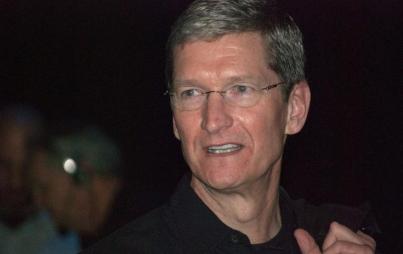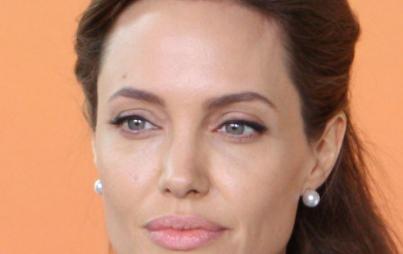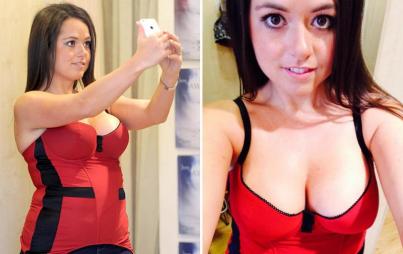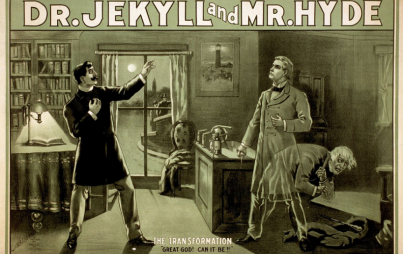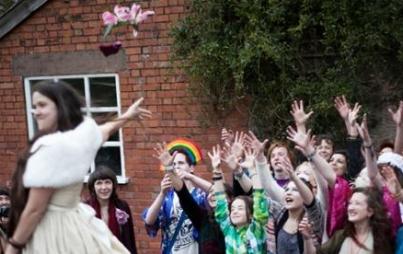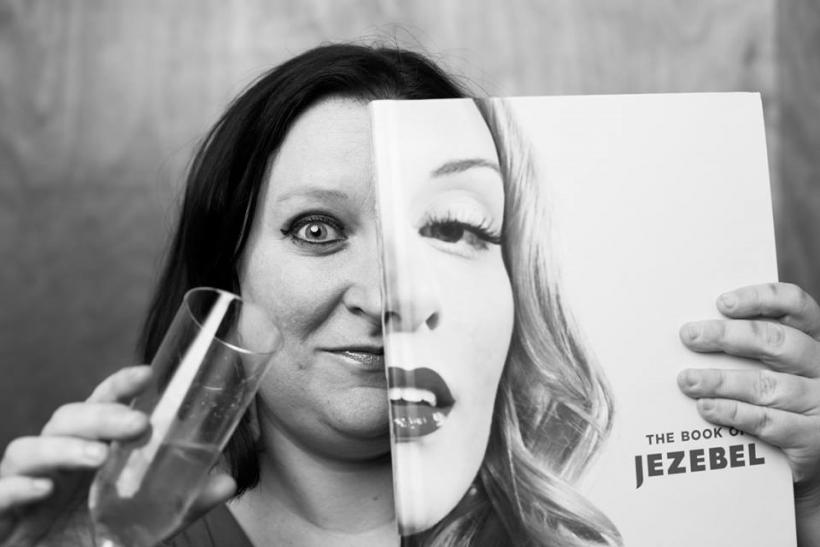
I never thought I'd find my call in journalism. Not to say I've heeded said call: I think I have a long way to go. I am disinclined from complicating every casual barroom encounter with impromptu symposiums on the nuances of journalism vs. blogging vs. jokes I tell on Twitter—I say I'm a "journalist," but I think I have much diligence due before I can, in good faith, insist on my credentials as a journalist.
But when Megan Carpentier called me up, six years ago, to interview me on the effects of homelessness on transgender women, I fancied myself a temporarily embarrassed "mover and shaker" who'd come to the Bay Area, the queer capital of the world, and squeezed the enema that shoots the coffee into the asshole of the sexual revolution. Like a lot of people do when they come out here at first. Don't even lie: That was totally you, too.
Now and again I find myself amid a "oh shit I'm alive" moment—not a realization of consciousness, but a recognition of, and respect for, the fact that you are part of a large connected network of need machines. The last time I had such a strong moment of "oh right, I live here on earth with the rest of the earthlings," I was crawling out of my girlfriend's bed to find her at her laptop, reviewing notes from her editor, the same woman who reached out to me several jobs and apartments ago to let me share the struggle of a generation of women. In that time, Megan had gone from a reporter to the Opinion Editor of The Guardian, and I from a wayward early 20-something to a wayward nigh-30, but with better cardigans and a genuine, actionable plan to do good in the world. I'll be a journalist! Expose corruption, highlight triumphs of the human spirit, pace around my laptop drinking red wine! Or white. You can freeze grapes and use them like ice cubes!
In a time when anyone can start a blog or a Twitter account and spew whatever info they can conjure, we must anchor ourselves to tangible credibility, whether it's education, mentors, or experience. We must lean on and rely on what teaches us, so that we can do the work that is needed—bringing light.
To this end, I implored my friend to take me on as a teacher—like, take me in a fight. But instead we talked about ice cream and the role of media in women's reputations.
TeacherDome will have to wait.
The concept of and insistence on "objectivity" in journalism is actually what kept me at a distance—from doing it, caring how it's done, etc.—for so long. I wonder now: Is that the point? Is objectivity intended to make journalism inaccessible to the people that need it done well? And hasn't it all gone out the window now, with the pointed targeting of journalists and photographers by police at the recent Ferguson protests? It seems our role or "side" of this particular issue has been made for us.
I think the concept of "objectivity" evolved (in a bad way) from the idea that one shouldn't be part of the story without readers being aware, to the idea that one can or should strive to eliminate any subjectivity from one's reporting, which is clearly impossible. I do think that there are good reasons for there to be reporters who aren't carrying signs in protests about which they're writing, or who aren't invested in the stocks of companies on whom they're reporting, or who aren't making political donations to candidates for office about whom they're reporting. And there's also a great wave of activist journalists who are sign-carrying and politically donating and upfront with their readers that they are doing so. We need both, and we need the disclosures from all that allow readers to tell the difference.
Objectivity shouldn't be about pretending to not have an opinion or a stake, but about recognizing it, disclosing it when necessary, and working with your editors to make sure that you're interrogating your own work for it.
Without trying to name names, because it's easy for it to happen to anyone, I'm sure that you or anyone reading can think of a time when a reporter or a news outlet got punked by a fake Twitter account, or a satirical news site—and it always happens because the fraud tracks with what the writer or reporter felt to be true because of their existing biases.
My former boss at Talking Points Memo, Josh Marshall, told me once that the stories to interrogate the most are the ones that you feel most strongly must be true, and that has really stuck with me in the years since (and I'm reminded of it every time I see someone taken in by a hoax). But the starting point is understanding where your biases are!
Journalists and photographers have always been targeted by state actors, both here and abroad, because one of their roles in a free society is to help citizens question the state and keep it (more) honest.
What's the funniest comment to one of your articles that you can remember? Like, months or years later, still makes you laugh?
I tell this story a lot, actually! Years ago, when I was writing under a non-gendered pseudonym but was forthright about my gender, I wrote something about sexual politics—less about doin' it, more about how and why I pursue or turn down offers of sex—and my dad emailed to point out that one of the commenters had declared that I was clearly a man because no woman could possibly conceive of sex that way; it was an overly masculine way of viewing it.
(My dad's email read "I didn't know I had a son!" and had a link to the comment.)
I sort of knew that was how a lot of people understood my sexual self-permissiveness, but I found it hilarious that someone would state it openly as a way of trying to undermine my authority on everything else I'd ever written.
I have a weird sense of humor.
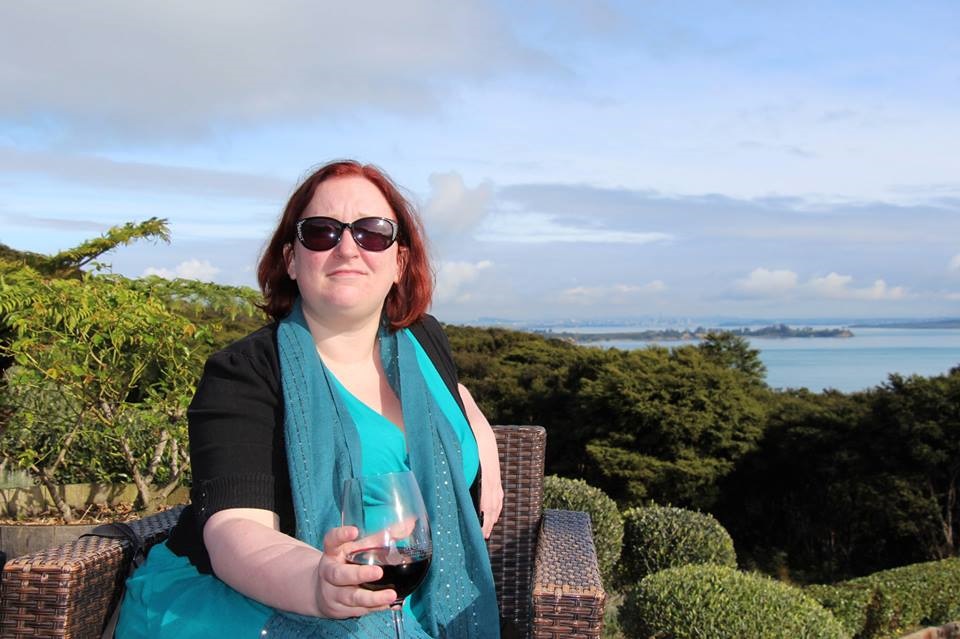
Do you ever find yourself struggling to pick a flavor of ice cream and reflect that you're called for your expertise on Hillary Clinton and the Palin family, but being an expert "on yourself" feels frustratingly out of reach?
I never struggle to pick an ice cream flavor: cookies & cream first and foremost, mint chocolate chip if that's not available (mint chocolate cookie being the best of all possible ice cream worlds, but also very rare), and chocolate if the selection is truly limited (but with sprinkles).
In the same vein, I'm 37 years old . . . I'm not sure I would've considered myself an expert on myself in my twenties or even the first little bit of my thirties, but I also did a (VERY NECESSARY) stint in therapy at the end of my twenties and have been working to apply the lessons of that ever since, both in how I interact with the world and how I interrogate my own actions, interactions, and emotional responses. It doesn't make me a perfect person—there are ways in which I can be a tremendously shitty person—but it at least gives me insight into why I'm being shitty, and that gives me an opportunity to change it if I want, and accept it if I don't.
And, when I don't understand why I'm acting a certain way, or doing a certain thing, or feeling a certain emotion, I've learned to back away from whatever I'm doing or the situation that's making me really emotional and spend some time asking myself why before I move on or continue to engage. When I'm angry, for instance, sometimes that means taking walks or deep breaths and figuring out what is making me so furious and if that's necessary and whether it'll fix what needs fixing or achieve what I need to achieve in a situation.
I actually just watched my first ballet—Mark Morris' "The Hard Nut." I thought having a background in opera would maybe positively predispose me to enjoy it. Nope! I did not get it at all. Ballerinas and opera singers seem at odds—different things are expected (and encouraged) from them, which aligns with our cultural allowances for women and girls. I've never seen anyone suggest a female principal that she stick to salad. Do you have a ballet you'd recommend to the skeptic, and do you ever order the salad?
It's funny you ask—I actually took ballet lessons from the time I was 7 until I was 17 but, having grown what are kindly known as "child-bearing hips" there in the middle, I was never destined to be very good at it and did some reasonably permanent damage to my body which, luckily, doesn't affect my life too badly most of the time (and prompted a switch to modern dance and ballroom dance for a few years). And one of my cousins is a professional ballerina!
My intro ballet was "The Nutcracker," which my parents took us to when I was a kid, and as a ballet I think it's reasonably easy to follow the plot, which can help if plot's what you're into. My cousin was, until recently, dancing at the School of American Ballet here in NYC, which is a Balanchine company (which means they either perform his original choreography or work inspired by it), and I think if you're into shapes, it's very beautiful—but almost better seen from the balcony, to appreciate the shapes he created with dancers on stage.
But honestly, if you just want to see dance as an art form, as opposed to a ballet-ballet, go see the Alvin Ailey company the next time they're performing in your area.
I sometimes order a salad, but I rarely order the salad, unless it's at lunch. But even when I was thin, I wasn't thin-thin (see also: "child-bearing hips")—and I was a weird, nerdy girl who built much of my self-esteem as a weird nerdy girl around being smart and being able to communicate rather than expecting that I was ever going to be thought of as pretty. So I think I haven't, in my life, stressed as much as many women about my weight or other people's perceptions of my attractiveness because I'd always been certain that I didn't have very much.
(But one time, when an adjustment to my braces gave me a slight lisp, I had an utter, hysterical meltdown, cried for three hours straight, and then my parents caught me in the bathroom with a pair of needle-nosed pliers trying to take them out by myself and had to take me back to the orthodontist the same day. So I clearly have the capacity to stress about my external presentation; I've just utterly focused it elsewhere.)
What regimen of self care enabled you to work in government relations for seven years without wholly obliterating your belief that you could make a difference writing about politics?
Remember when I said I went to therapy? I am not very good at self care, so near the end of those seven years—not entirely because of the career choices—I was depressed, suicidal, drinking to the point of blacking out every night and generally engaging in self-destructive behavior (like, writing about/making fun of my career under a pseudonym . . . which is how I got started writing). And I thankfully found my bottom quicker than I probably had any right to, and called one of my best friends who I'd helped get into therapy and asked for his therapist's number and started going. I don't know that I can make a difference? But I think it's important to at least make a difference in how politics and policy are communicated to the people they affect, and it feels less like a waste to use my knowledge of politics and policy on trying than anything else.
(I still reserve the right to change my mind and become a cab driver or something.)
As an editor, do you often have to choose between "creating a better article" and "helping make a better writer"? Which do you choose? Can/do they sometimes tie? You offered to critique one of my articles once, while I was still freelance, and though we've known each other for six years now and have even commented on each other's selfies, I was still terrified at the prospect.
I think, as an editor, helping a writer to create a better article can, if they learn from the experience, help them become a better writer. Most of the time in editing persuasive writing—which is what an op-ed is—I try to edit for how the audience is going to perceive the phrasing and the argument. I want every piece to be the strongest piece possible, to help it have the intended impact.
As an editor, whether as a news editor or an opinion editor, there is nothing more frustrating than correcting the same errors in someone's writing over and over and over again over the course of several pieces.
I still owe you that! But also, I'm not sure the specific critiques I had of that piece at that time would still be valid, because, by writing so consistently, you're practicing more and more and getting a sense of how you're being understood (or not) by the readers you want to reach and learning from that experience.
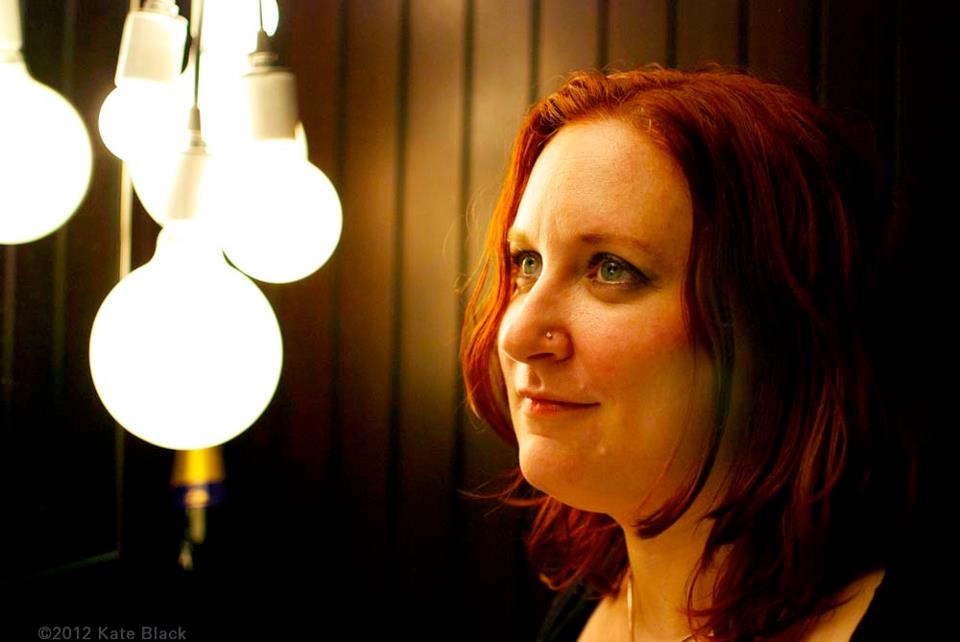
How, if at all, would Monica Lewinsky's public crucible have been different had there been social media? The orchestrated misogyny of GamerGate would not have been possible, I feel, in an "old media" model, though the infrastructure to punish women through proliferated media has always existed.
I think those of us who engage in social media radically overestimate the broader impact of social media: Even among adults who are online, only about 20% use Twitter. (About 75% of adults online use Facebook, for comparison.)
So something like #GamerGate, while painful and damaging to its targets, doesn't have the reach, really, of the deluge of traditional, international media attention that Monica Lewinsky really faced. So while Lewinsky didn't face the onslaught of egg-avatars telling her to hurt herself or threatening to hurt her, say, she did have the intimate details of her sex life explored in print and broadcast media (including an audio book of the Starr Report!) and on late night talk shows while those were literally the dominant media forms to which everyone had access, and when people's attentions weren't as split by the Internet and social media.
To this day, as she recounted in her Vanity Fair piece earlier this year, she remembers reading second-wave feminists essentially calling her a whore—but with the imprimatur of the mainstream media, not just on Twitter. I'm loath to say one is more damaging than the other: Both feed and are fed by the dominant culture's efforts to proscribe women's lives.
Is there something you love and wish you could write about, but feel it isn't financially feasible, like, in terms of "viral consumption"? I really did think for a while that I was gonna be able to write about pinball and demolition derbies for a living, and then I found myself walking along the protests. Have you ever had an "oh right this is what I need to be doing" moment in your writing career?
In my current position, there isn't a real focus on "viral consumption": We're focused on telling the stories and having conversations about the issues of our times from a broad range of people who reflect what America is and is becoming, which is more diverse.
But, in general, when I write, I do get to write about the things that I think are important. I don't know that anyone needs or wants to hear about the things I love in longer than 140 characters at a time—eavesdropping on other people's terrible dates in restaurants, red wine, weird pictures I find on Flickr, cats (I'm a first-time cat guardian), my terrifyingly awesome friends—but I do write about the stuff that I think is important, and I love being able to publish other people's writing on what they think is important.
I think, in general, working at The Guardian has been my "oh right this is what I need to be doing" moment of my career, both writing- and editing-wise. I know that's, like, the baked brie of interview answers, and nothing is perfect, but I feel like here I'm doing smart things that make sense to be doing, basically every day.
(Literally every day some times.)
Back when we first met people were actually saying "kyriarchy" without irony and now nobody does—the proliferation of social justice blogging has made "patriarchy" a mainstream word, and now we have to fight MRAs and trolls who want to relegate it to the parodical. But I always liked "kyriarchy" better. Do you like words? What's a word that you like?
I think "kyriarchy" is a better word because it's so academic that you're forced not to use it in most writing! People toss around the word "patriarchy" but there's no one, universally-accepted definition of it (like the phrase "rape culture"), and it immediately then makes the non-choir to whom persuasive writers ought to be preaching tune out or click off, because they don't know what it means! (Once you start editing, it's hard to stop.)
I do like words—I love swear words and SAT words with equal intensity. I love finding (and using) the perfect word to describe something, and I love making up words sometimes when the perfect word doesn't exist. It's fun working in an office with a bunch of British people who occasionally use words we don't really have in America in their fancy-sounding accents, and having to figure it out with just the context to guide me (which is how I learned a lot of big words in the first place, when I was reading above my grade level as a kid).
I have always loved the word "onomatopoeia," honestly. And "rhythm," because it's its own exception. And "mellifluous," which my friend Michelle said out loud the other day and it sounded super nice because she has a bit of a Canadian accent.
How do you find solidarity and community, as a woman with visibility, and one who is asked to comment on other women with visibility—a model that encourages a lot of backbiting and internalized misogyny?
The gender version of class consciousness is something I try to be aware of on a daily basis: We absolutely are taught to view each other as competition, and to see one opening for a woman in a male space and assume that it is the woman who we have to beat to get into that space, rather than the man. I sort of see it like a ladder: If you're climbing up to get to whatever's at the end, you can spend a lot of time staring only at the feet directly above you and grabbing at them, or at kicking the people underneath you, worried that they will grab at you, than focusing on whomever is already at the top, watching you jockey for position instead of moving up. I shouldn't just want to replace some woman at an organization; I should want to replace a man.
And, yes, there's a lot of ease, culturally, with women policing other women's femininity or looks or sexuality—because, I think, it feels like it's excusable when women do it in a way that it's not when men do it. But that's not that interesting to me, as a writer or a woman. It's not creative or edgy to side with men against other women, to think that your own woman-ness becomes more positive when contrasted with another woman's who has supposedly been found wanting. None of us is perfect in that regard, and I'm surely not either. But I'd rather try to be better, and be aware of the built-in dynamic and work to subvert it, then allow it to operated unimpeded in my own head.

